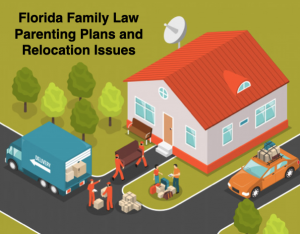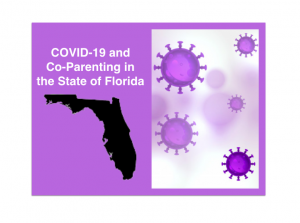 Couples fight and argue. Families get into disagreements. Roommates can’t get along. But, in some cases, these conflicts rise to the level that violence between people is dangerous and needs intervention. Our recent situation, where families, roommates, neighbors, and others are confined to their living spaces for elongated time periods highlight for many that their homes are not safe places for themselves or the people around them. It’s another serious dilemma facing us all as schools who watch over the safety of children are closed, and those who suffer feel as though they must suffer in silence, because there is no place that is safe for them to go.
Couples fight and argue. Families get into disagreements. Roommates can’t get along. But, in some cases, these conflicts rise to the level that violence between people is dangerous and needs intervention. Our recent situation, where families, roommates, neighbors, and others are confined to their living spaces for elongated time periods highlight for many that their homes are not safe places for themselves or the people around them. It’s another serious dilemma facing us all as schools who watch over the safety of children are closed, and those who suffer feel as though they must suffer in silence, because there is no place that is safe for them to go.
Unfortunately, as liquor stores are considered “essential businesses” and many individuals face economic stress as well as fear from the Coronavirus, the climate for domestic violence is warming and becoming dangerous. Many law enforcement agencies have reported lower than normal call logs for assistance in situations of domestic violence, but that does not mean that the incidents themselves are lower, but rather that many who find themselves in a domestic violence situation feel as though there is no where for them to go, or they fear where they will have to go while trying to keep themselves safe during these days of “social distancing.”
If you are experiencing a violent or threatening situation in your home, now is not time to remain quiet. As a community, we are surging in reaching out to others, and being of service to one another in helping to get through this time. Calling law enforcement to report violence, or going to the hospital if you have been injured is not something that you should wait on in hopes that your partner will stop, no matter what they say. If you are being hurt, or threatened, you can go to the local courthouse in your area. In the State of Florida, the Courthouse remains open with a trained staff to help you to file the necessary Petition for Protection Against Domestic Violence, and the judges are reviewing these Petitions and placing temporary Orders for Protection Against Domestic Violence, if legally sufficient, to protect people during these times. At Wood, Atter, & Wolf, P.A., we are also working diligently through this time to help those in need that may need representation to facilitate the filing or advocacy in the courtroom of domestic violence injunctions to keep victims and children safe. As an experienced attorney in the field of domestic violence, knowing whether your situation is one that requires an injunction, and what services may available to help you through this time, is a main priority, as well as ensuring that your home can remain a safe place for you.
 There are few words that send shivers down the back of a higher earning spouse than “permanent alimony.” In Florida, Fla. Stat. 61.08, states after a couple has been married for seventeen (17) years, there is a rebuttal presumption that permanent alimony should be established to protect the lower earning spouse from financial ruin after a divorce. But it is important to understand what the provision really means by taking it in parts.
There are few words that send shivers down the back of a higher earning spouse than “permanent alimony.” In Florida, Fla. Stat. 61.08, states after a couple has been married for seventeen (17) years, there is a rebuttal presumption that permanent alimony should be established to protect the lower earning spouse from financial ruin after a divorce. But it is important to understand what the provision really means by taking it in parts.





 Understanding divorce law is a tricky adventure. When you are going through it, almost everyone has an experience or an opinion about how things should go or what you should do. The truth is that every case, like every relationship, is different and while there may be some similarities between cases, no two cases will end up the same way. Judges and lawyers rely on previous court cases to provide guidance in the courtroom based on how appellate, or higher courts, have decided, but in each case there will be some facts that make the case different enough that a new result can be reached. When friends and family are making their suggestions, it is important to realize that they want to be helpful, but gaining real advice should come from an experienced attorney that can help you to have accurate, updated information in making your decisions.
Understanding divorce law is a tricky adventure. When you are going through it, almost everyone has an experience or an opinion about how things should go or what you should do. The truth is that every case, like every relationship, is different and while there may be some similarities between cases, no two cases will end up the same way. Judges and lawyers rely on previous court cases to provide guidance in the courtroom based on how appellate, or higher courts, have decided, but in each case there will be some facts that make the case different enough that a new result can be reached. When friends and family are making their suggestions, it is important to realize that they want to be helpful, but gaining real advice should come from an experienced attorney that can help you to have accurate, updated information in making your decisions. The depressed economy has affected everyone from small business to individual workers. Unemployment is currently as high as it was during the Great Depression, and families are struggling to get through. Economic stimulus payments and unemployment benefits are now lifelines for many families to make ends meet. But what happens when you have had a job where your child support has been taken out of a paycheck that now isn’t coming anymore?
The depressed economy has affected everyone from small business to individual workers. Unemployment is currently as high as it was during the Great Depression, and families are struggling to get through. Economic stimulus payments and unemployment benefits are now lifelines for many families to make ends meet. But what happens when you have had a job where your child support has been taken out of a paycheck that now isn’t coming anymore? Family law cases are constantly evolving and changing, because like as children grow and change, their needs and the needs of the parents also change. In some instances, parents find that they have to move to a different state for a new job, better opportunities, or for a new marriage. When parents have divorced or have a Parenting Plan from a paternity case, where they share a minor child, when these changes occur, it’s important that you are aware of the limitations and procedures that you need to follow in order to make sure that you are following the Court’s previous orders in your case to be successful in attempting to move.
Family law cases are constantly evolving and changing, because like as children grow and change, their needs and the needs of the parents also change. In some instances, parents find that they have to move to a different state for a new job, better opportunities, or for a new marriage. When parents have divorced or have a Parenting Plan from a paternity case, where they share a minor child, when these changes occur, it’s important that you are aware of the limitations and procedures that you need to follow in order to make sure that you are following the Court’s previous orders in your case to be successful in attempting to move. Couples fight and argue. Families get into disagreements. Roommates can’t get along. But, in some cases, these conflicts rise to the level that violence between people is dangerous and needs intervention. Our recent situation, where families, roommates, neighbors, and others are confined to their living spaces for elongated time periods highlight for many that their homes are not safe places for themselves or the people around them. It’s another serious dilemma facing us all as schools who watch over the safety of children are closed, and those who suffer feel as though they must suffer in silence, because there is no place that is safe for them to go.
Couples fight and argue. Families get into disagreements. Roommates can’t get along. But, in some cases, these conflicts rise to the level that violence between people is dangerous and needs intervention. Our recent situation, where families, roommates, neighbors, and others are confined to their living spaces for elongated time periods highlight for many that their homes are not safe places for themselves or the people around them. It’s another serious dilemma facing us all as schools who watch over the safety of children are closed, and those who suffer feel as though they must suffer in silence, because there is no place that is safe for them to go. The times we are living in are unprecedented. As “non-essential” businesses are closing and schools seem to be either closing or “going online,” the endless spring break has created a situation where many co-parents lack the necessary guidance that they need to proceed these dark waters in effectively parenting. Court orders are drafted to provide reasonable guidance for circumstances, but the current status of a national health emergency is not a provision contained in parenting plans. A recent study of Americans found that the greatest current fear is that of “the unknown,” and when you do not know how to move through this situation regarding your child, that fear of the unknown is amplified.
The times we are living in are unprecedented. As “non-essential” businesses are closing and schools seem to be either closing or “going online,” the endless spring break has created a situation where many co-parents lack the necessary guidance that they need to proceed these dark waters in effectively parenting. Court orders are drafted to provide reasonable guidance for circumstances, but the current status of a national health emergency is not a provision contained in parenting plans. A recent study of Americans found that the greatest current fear is that of “the unknown,” and when you do not know how to move through this situation regarding your child, that fear of the unknown is amplified. When you are getting divorced, the court is going to have any different components when dividing up your life between you and your spouse. From Parenting to Personal Property, the lists can be significant and the stress of balancing what your priorities can take its toll. In many cases, when spouses divorce, a big question that comes up is “what about alimony?”
When you are getting divorced, the court is going to have any different components when dividing up your life between you and your spouse. From Parenting to Personal Property, the lists can be significant and the stress of balancing what your priorities can take its toll. In many cases, when spouses divorce, a big question that comes up is “what about alimony?” Learning that you are expecting a child is one of the most exciting and life changing moments that parents experience. Between the planning and wonder of what this new life will bring to your life, parents are on a roller coaster from the beginning. In cases where the parents are not married and remain together, it seems like the perfect setting as you embark on a new aspect of your relationship. In some instances, the years pass, and the couples stay together, as if just like married couples, raising their families and sharing in the memory making moments. In others, just like married couples, the struggles of daily life and raising children take their toll on the central relationship between the parents and break ups occur.
Learning that you are expecting a child is one of the most exciting and life changing moments that parents experience. Between the planning and wonder of what this new life will bring to your life, parents are on a roller coaster from the beginning. In cases where the parents are not married and remain together, it seems like the perfect setting as you embark on a new aspect of your relationship. In some instances, the years pass, and the couples stay together, as if just like married couples, raising their families and sharing in the memory making moments. In others, just like married couples, the struggles of daily life and raising children take their toll on the central relationship between the parents and break ups occur.